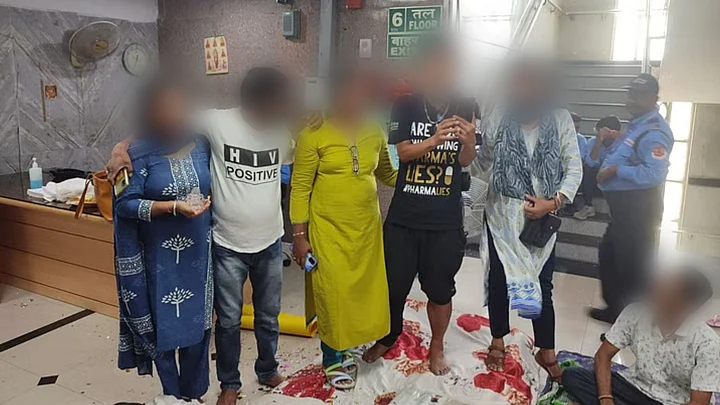A protest being held by HIV positive patients over the shortage of medical supplies in Delhi ended on Wednesday, 31 August, after 42 days.
The protests, which had started outside the National Aids Control Organisation (NACO) office in July, were being held as several HIV positive patients said that they were not getting access to antiretroviral (ARV) drugs for their treatment.
They had also demanded that all HIV patients in India should start receiving one month of medical supplies.
"After 42 day-and-night sit-in protests at the NACO office, today (I) am happy to report that all supplies have reach the ART (Antiretroviral Therapy) Center and all clients started receiving their one month-dose. Hence, we decided to call off our 42-day protest," a statement from the protesters said.
They also thanked all those people who had supported them financially during their sit-in.
Antiretroviral drugs save the lives of thousands living with HIV or HIV-AIDS. NACO is the central government agency tasked with providing the medicines, diagnostic kits, and other essentials like training to treat patients living with HIV.
Why Were HIV+ Patients Protesting?
Patients had alleged complete unavailability of medicines, including those for HIV positive children.
They also claimed that drugs were being switched from one class to another for a majority of the patients, adding that if they do not get access to drugs in the next few weeks, it could lead to serious complications.
"I am HIV positive and have been taking medicines since 2017. For the past 5-6 months, there has been a shortage of medicines. Some time back, we used to get medicines for 15 days, but now, we are getting medicine for 3 days, or 5 days, or a week," an HIV positive patient had told The Quint.
NACO had repeatedly urged them to end their protest, assuring the proper supply of medicines, but the patients had refused to do so.
Several meetings between the protesters and officials were also conducted.
Health Ministry officials had said that there was enough stock of ARV medicines and that fresh supplies would soon come in.
The Centre had also informed Parliament that there was sufficient stock of such drugs for around 95 percent of HIV positive patients in India.
(At The Quint, we question everything. Play an active role in shaping our journalism by becoming a member today.)
